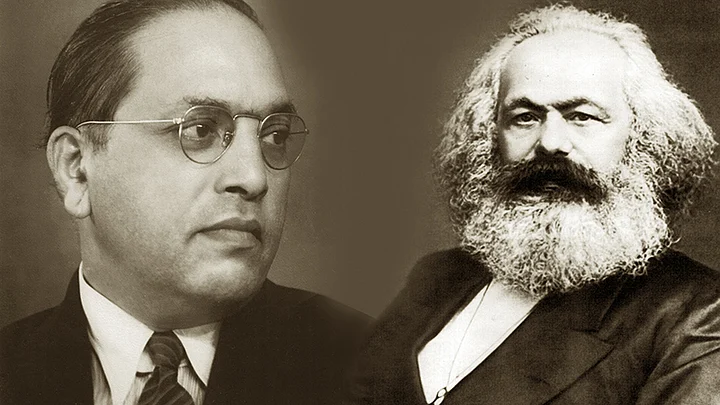It is Babasaheb Ambedkar’s 125th birth anniversary today. The Quint decided to bring you back a few pieces from its archives to mark the occasion.
An American Dream, Broken in India
BR Ambedkar’s story could have been the typical American Dream. His family came from one of the most backward communities in the world – the ‘untouchables’ of India. His father, a soldier, insisted his son attend the local government school. From there, by his talent and brilliance, Ambedkar became the first Dalit to attend Elphinstone College in Mumbai.
In America, he received a scholarship to Columbia University in New York and became a Doctor of Economics. He went on to get three more PhD’s, in the U.S, London and India.
This rags-to-riches story, the tale of the self-made man would likely have acquired mythic status in America.
Ambedkar though, returned to India. All the brilliance and hard work could not change his caste. He was appointed Military Secretary by the Maharaja of Baroda, but nobody would take orders from an ‘untouchable’. Despite the attempts of the Prime Minister of Baroda, he couldn’t even find lodging in a decent part of the city.
Village vs City, Gandhi vs Ambedkar
Gandhi’s utopia was a rural one. The village, the factory and even the hospital were the products of the ‘modern’ world that Gandhi wanted us to escape. He believed in Village Republics, self-governing and self-sustaining rural units that would have ‘traditional’ forms of government.
Ambedkar, who had seen the darker side of this so called traditional India, did not think of the village as an idyllic paradise.
The love of the intellectual Indian for the village community is of course infinite, if not pathetic… What is a village but a sink of localism, a den of ignorance, narrow mindedness and communalism?
– Dr. B.R. Ambedkar
For Ambedkar, freedom from entrenched inequalities like caste could only come with Modernity. Local self-government like Panchayats would only be vehicles of vested upper caste interests.
Was he completely wrong? It doesn’t seem so. Khap Panchayats, honour killings and so much more emanates from so-called guardians of tradition.
It was in the city and Capitalism that Ambedkar saw some hope for the equality and liberty of India’s ‘untouchables.’ Like Karl Marx, he believed in the power of the free market (for both capital and labour) and industry to free individuals from feudal inequality. Marx, of course, thought Capitalism brought its own set of evils, making the world ripe for a Socialist revolution.
For Marx, Capitalism was just another step towards a Socialist utopia, for Ambedkar, freedom from brutal caste inequality was the first step.
Even today, Ambedkar is the only Indian whose photo is in the London Museum, alongside Karl Marx.
American Ambedkar for India Today
Ambedkar’s response to inequality in India went against the grain at the time.
Even as other pre-Independence leaders like Nehru turned towards Europe and the Soviet Union for ways to structure their new country, what made Ambedkar resist the allure of the Old World?
Unlike Ambedkar, many leaders of the National Movement were upper-caste, upper-class elites, already steeped in British culture and institutions. To add to that, a recently de-colonised India was deeply fearful of opening up its young economy.
Ambedkar, on the other hand was in America at a time when the Federal government, led by President Theodore Roosevelt, had recently begun curbing monopoly Capitalism. The ‘trust-busting’ President increased government oversight in heavy industries like the Railways, ending the era where barons like Rockefeller ruled.
Ambedkar was also influenced by pragmatists like John Dewey, under whom he studied at Columbia.
In a world of idealists like Nehru and Gandhi, this made him stand apart.
And that’s what makes him so relevant to Indian politics today, why both the Congress and BJP are tripping over each other to appropriate his legacy.
India is still a deeply stratified country, and Ambedkar was a champion of equality.
India is trying to grow its economy, and he stood for free markets and modernity.
